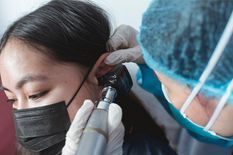What are Ear, Nose & Throat (ENT) disorders?
The ears, nose and throat are important parts of the body that are used on a daily basis. The ears are sensory organs that are not only related to hearing, but also function to provide you with a sense of balance. The nose is also a sensory organ that provides the body with a sensory of smell and taste. It also plays an important part in humidifying air we breathe and works to prevent germs from entering the body. The throat provides the route for air to reach the lungs as well as the route for food and water to enter your digestive tract.
Disfunctions on the ears, nose and throat can dramatically affect a person’s quality of life and in some cases may constitute as a medical emergency. Below are some of the common disorders of the ear, nose and throat:
- Tonsillitis
Tonsillitis is the inflammation or infection of the tonsils. This condition can be caused by the common cold, mono or strep throat. It is a very common condition that can cause severe throat pain. When inflammation becomes severe, it can interfere with swallowing and breathing.
Surgical removal of the tonsils, called tonsillectomy, may be performed but not necessarily when the tonsils become inflamed or infected for long periods of time. One of the most common conditions that can be sometimes treated with tonsillectomy is sleep apnea. - Ear infections
Ear infections occur when germs enter the ear and become trapped there, or you may have fluid or mucus build-up from a recent infection or allergy, allowing viruses or bacteria to grow in the ear. Symptoms may include pain, hearing loss, balance problems and drainage from the ear.
Some children may pull or tug at their ears. If the ear infections goes untreated for long periods of time, it can cause delays in their development, such as hearing and speech delays.
If your child has chronic ear infections, your healthcare provider may choose to surgically put ventilation tubes inside your child’s ear. - Sinus infections
Sinuses are cavities in the skull that surround the eyes and nose and are responsible for vocal resonance. Sinusitis can occurs when these cavities become infected by bacteria, fungi, or a virus, or inflamed due to allergies or other conditions.
Symptoms of sinusitis may include:
- Headache
- Runny nose
- Sneezing and coughing
- Bad breath
- Pain around the eyes or across the bridge of the nose
- Toothaches
If you have a chronic ear, nose or throat problem, it is advisable to seek your primary healthcare provider or an otolaryngologist in the management of your disorder.
